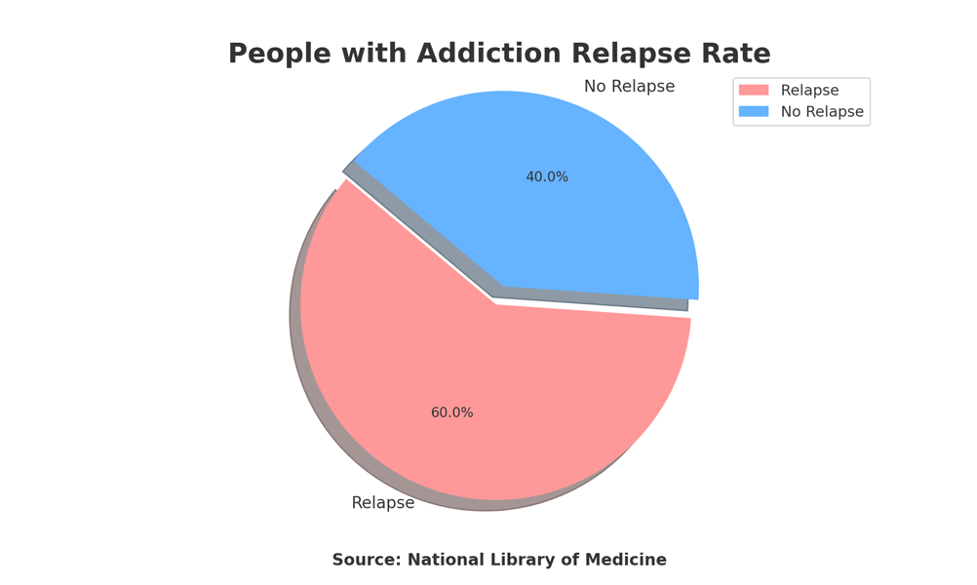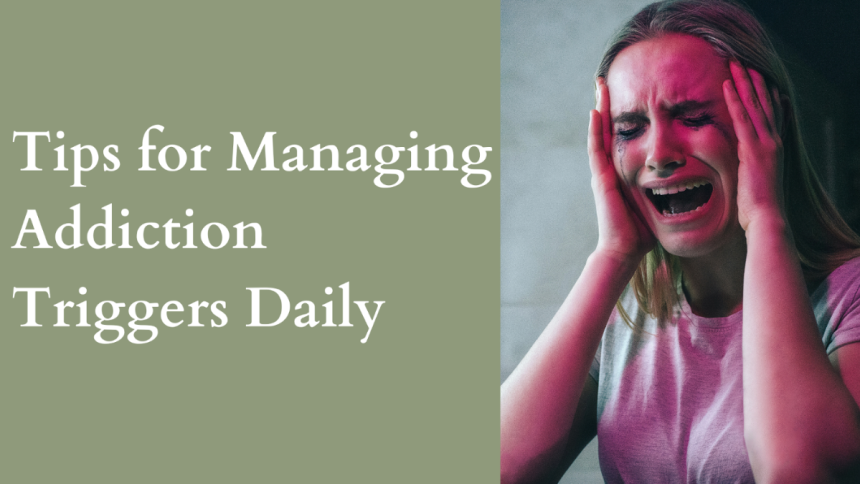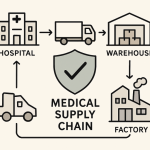Navigating the journey of addiction recovery is a daily struggle, where effectively managing triggers can significantly impact progress. Whether you’re new to the process or have been on this path for years, understanding and effectively managing addiction triggers is crucial for sustained progress. In this comprehensive guide, we’ll delve into actionable strategies, insightful resources, and empowering insights to assist you in mastering the art of managing addiction triggers on a daily basis.
Identifying Your Triggers
At the heart of any addiction recovery plan lies the crucial step of identifying your triggers. Triggers are the specific situations, emotions, or environmental cues that can tempt you to engage in addictive behaviors. Understanding these triggers is the first step toward developing effective coping mechanisms.
Common addiction triggers include the following:
- Stress and Anxiety: Overwhelming feelings of stress or anxiety can increase the urge to turn to addictive behaviors as a means of coping.
- Social Situations: Certain social settings, such as parties or gatherings where alcohol or drugs are present, can act as powerful triggers.
- Boredom: When left without meaningful activities or engagement, boredom can lead to a heightened risk of relapse.
- Emotional Turmoil: Unresolved feelings of sadness, anger, or loneliness can trigger the desire to self-medicate through addictive substances or behaviors.
Regardless of the types of addiction you’re facing, whether it’s substance abuse, behavioral addictions, or a combination, understanding your unique triggers is crucial. To identify your triggers, consider keeping a journal to reflect on the situations, emotions, or environmental factors that precede cravings or the urge to engage in addictive behaviors. This self-awareness is a crucial step towards developing personalized strategies for managing triggers.
Strategies for Managing Addiction Triggers
Acknowledging the presence of triggers is only the first step. The real challenge lies in developing effective strategies to manage them daily. Let’s explore several proven approaches to help you stay on track with your recovery goals.
Building a Support Network
One of the most powerful tools in your arsenal is a robust support network. Surrounding yourself with individuals who understand your journey and can provide guidance and encouragement can make all the difference.
- Support Groups: Participating in support groups, such as Alcoholics Anonymous (AA) or Narcotics Anonymous (NA), can connect you with a community of individuals who have faced similar challenges. These groups offer a safe space to share experiences, learn coping strategies, and find accountability partners.
- Personal Support System: In addition to support groups, cultivate a personal support system of trusted friends, family members, and counselors. These individuals can provide a listening ear, offer emotional support, and help you navigate difficult situations.
Developing Healthy Coping Mechanisms
Replacing addictive behaviors with healthier alternatives is a crucial aspect of managing triggers. Explore a variety of coping mechanisms that can help you counteract the urge to engage in addictive behaviors.
- Exercise: Physical activity can be a powerful tool in managing addiction triggers. Whether it’s a brisk walk, a yoga session, or a high-intensity workout, engaging in regular exercise can help release endorphins, reduce stress, and provide a healthy outlet for your emotions.
- Mindfulness Practices: Techniques like meditation, deep breathing, or guided imagery can help you stay present, regulate your emotions, and resist the urge to succumb to addiction triggers.
- Creative Outlets: Engaging in creative hobbies, such as painting, writing, or music, can provide a constructive and fulfilling way to express your emotions and redirect your focus.
Structuring Your Day
Maintaining a consistent daily routine can be a powerful tool in minimizing unexpected triggers. By creating a structured schedule, you can establish a sense of stability and predictability, which can help you navigate the challenges of recovery more effectively.
- Establishing a Routine: Develop a daily routine that includes activities such as exercise, meal planning, work or school commitments, and leisure time. This structure can help you stay grounded and minimize the risk of encountering unexpected triggers.
- Incorporating Healthy Habits: Weave in healthy habits, such as regular sleep patterns, balanced meals, and mindfulness practices, into your daily routine. These habits can strengthen your overall well-being and resilience against addiction triggers.
Avoiding High-Risk Situations
Identifying and actively avoiding high-risk situations that may serve as triggers is a crucial step in managing addiction. This may involve strategically planning your day to minimize exposure to these environments or having a plan in place for how to handle them if they do arise.
- Identifying High-Risk Environments: Reflect on the places, social settings, or events that have previously triggered addictive behaviors. Steer clear of these environments or have a plan in place for how to navigate them safely.
- Having an Escape Plan: If you find yourself in a high-risk situation, have a plan ready to remove yourself from the environment. This could include having a trusted friend or family member on standby or having a list of alternative activities or locations you can retreat to.
Embracing Professional Help
While building a personal support network and developing coping mechanisms are essential, there may be times when seeking professional assistance can greatly benefit your journey to recovery.
- Therapy: Engaging in individual or group therapy can provide a safe and supportive space to explore the underlying causes of your addiction, develop personalized strategies for managing triggers, and receive guidance from licensed professionals.
- Medication-Assisted Treatment (MAT): In some cases, medication-assisted treatment, such as the use of naltrexone or buprenorphine, can be a valuable complement to your recovery plan, helping reduce cravings and manage withdrawal symptoms.
By embracing professional help when necessary, you can access specialized resources and expertise to strengthen your ability to navigate the daily challenges of recovery from addiction.
Harnessing Technology and Resources
In the digital age, there are numerous tools and resources available to support your addiction recovery journey. Leveraging these technological advancements can be a powerful complement to your strategies for managing triggers on a daily basis.
- Digital Tools and Apps: Explore mobile applications designed to support addiction recovery, such as sobriety-tracking apps, meditation guides, and virtual support groups. These tools can provide personalized support, reminders, and access to a wider community of individuals on similar paths.
- Online Forums and Communities: Participate in online forums and communities where you can connect with others in recovery, share experiences, and seek advice from those who have walked a similar journey. These virtual spaces can offer a sense of camaraderie and valuable insights.
Personal Empowerment Through Education
Knowledge is power when it comes to recovering from addiction. Embracing a mindset of continuous learning and personal growth can empower you to navigate the challenges of managing addiction triggers more effectively.
- Deepening Your Understanding: Engage in ongoing education about the nature of addiction, the science behind cravings and triggers, and the latest advancements in addiction treatment and recovery strategies. This knowledge can help you make informed decisions and develop a more robust approach to your recovery.
- Exploring Recovery Resources: Seek out reputable resources, such as books, podcasts, and educational workshops, that delve into the complexities of addiction and provide practical guidance for navigating the recovery process.
Staying Prepared for Setbacks
It’s important to acknowledge that setbacks are a natural part of the recovery journey. Take a look at the below chart that shows the chances of getting relapses in addiction recovery.

Preparing for and addressing these moments can make all the difference in maintaining your progress.
- Normalizing Setbacks: Understand that relapse or temporary setbacks are not failures but rather opportunities for growth and learning experiences. Accepting this reality can help you approach challenges with compassion and resilience.
- Strategies for Bouncing Back: If you do encounter a trigger or experience a relapse, have a plan in place for how to bounce back. This may involve reaching out to your support network, implementing coping mechanisms, and addressing the underlying causes of the setback.
FAQs
Q1: How do I deal with triggers when I’m alone?
When alone, try mindfulness, healthy distractions, reaching out to your support network, or seeking professional help if struggling with cravings.
Q2: Can triggers become less intense over time, and how?
Yes, addiction triggers can become less intense over time through consistent management and coping strategies. The process of desensitization, where repeated exposure to triggers without engaging in addictive behaviors, can gradually reduce their impact.
Q3: Are there any warning signs that a trigger is about to lead to a relapse?
Watch for increased cravings, mood changes, social withdrawal, concentration issues, and neglected self-care – act quickly to prevent relapse.
Conclusion
Remember, managing addiction triggers is an ongoing journey, and setbacks are a natural part of the process. Some key points to keep in mind:
- Embrace resilience and continue to prioritize your well-being
- Seek support from your healthcare provider, local treatment centers, or national helplines when needed
Remain dedicated to learning and implementing effective strategies for managing triggers
With determination and a willingness to learn, you can master the art of managing addiction triggers daily and reclaim the life you deserve.
Lynn Martelli is an editor at Readability. She received her MFA in Creative Writing from Antioch University and has worked as an editor for over 10 years. Lynn has edited a wide variety of books, including fiction, non-fiction, memoirs, and more. In her free time, Lynn enjoys reading, writing, and spending time with her family and friends.















